Whitechapel’s Bengali community gathered on Saturday 25 October to oppose UKIP’s ‘Mass-Deportations Tour’
Thousands gathered as anti-racist organisations, trade unions and supporters joined Muslim protesters, who paused to pray during the march from Whitechapel Town Hall to Altab Ali Park.
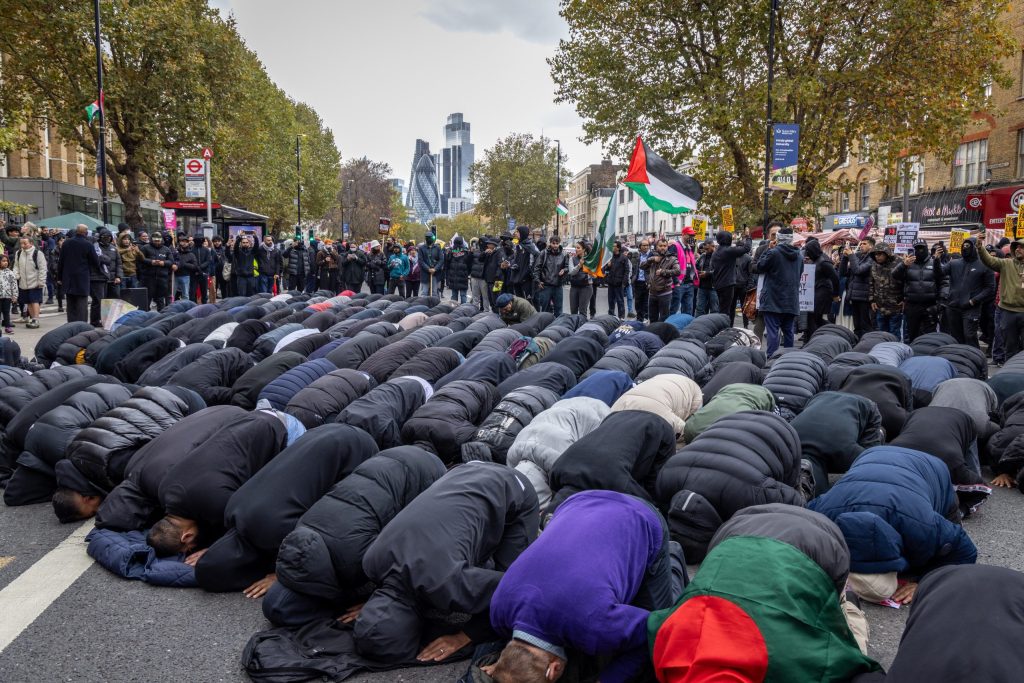
UKIP’s so-called ‘crusade’ to ‘reclaim Whitechapel from the Islamists’ was banned by Metropolitan Police, who cited a ‘realistic prospect of serious disorder’.
Speaking in Altab Ali park, Abdullah Ali, 50s, from Spitalfields, said that they had taken to the streets to ‘stand up against racism and defend our community’.
For him, the UKIP tour represented ‘purposeful agitation’ with terms like ‘crusade’ intended ‘to incite hatred towards Muslims.’
Ali said: “Anybody has a right to protest, we can’t stop that, but some of the premises they are basing their arguments on are either false or extreme.”
UKIP said its revised march would start from Brompton Oratory, a Catholic church in Kensington and Chelsea, and conclude by Marble Arch in the City of Westminster, according to its X account.
The Metropolitan Police invoked the Public Order Act — first introduced to curb Oswald Mosley’s British Union of Fascists — to prevent UKIP supporters from gathering in Tower Hamlets, home to the highest proportion of Muslims in the UK.
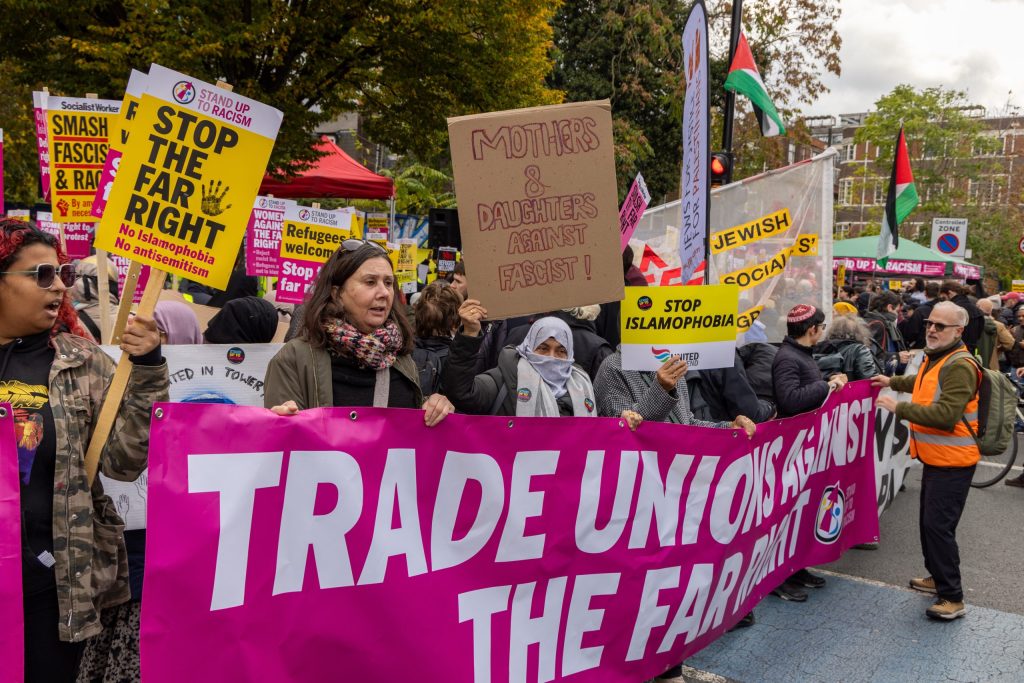
Nick Tenconi, the UKIP leader, has framed the party’s Mass-Deportation Tour around the theme of the crusades—military campaigns waged by Christians, primarily to reclaim Holy Land from Muslim control in the 11th to 14th centuries—promising to ‘reinstate Christianity back into the heart of government’ and to ‘declare war on the radical Islamists’ if he is elected, according to a video he posted on X.
His X account also includes a video in which he performs a gesture resembling a Nazi salute.

Counter-protestors in Whitechapel drew parallels with the East End’s history of anti-fascist resistance, particularly the Jewish immigrants’ defiance of Mosley’s Blackshirts at the Battle of Cable Street in 1936.
Cassius J Kalany, 27, from Hammersmith, was at the counter-protest and said: “You’ve got UKIP, BNP, National Front, there is always a new iteration of [the far-right].
“UKIP are irrelevant compared to Reform.”
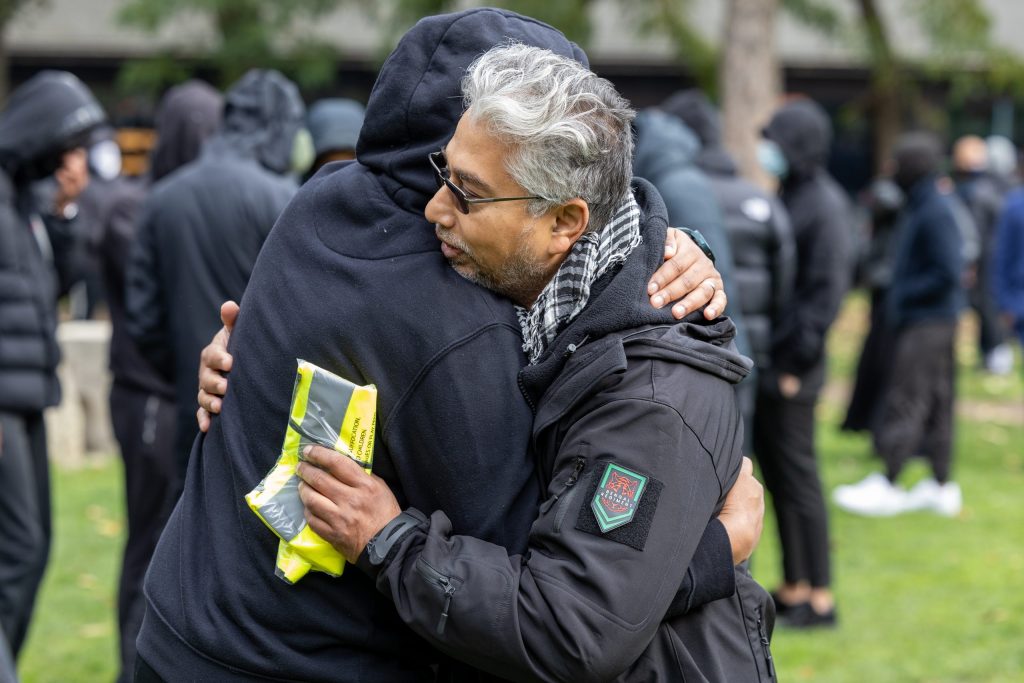
Kalany, who is a writer for Fight Racism! Fight Imperialism!, suggested that migrants had always been scapegoated ‘from the time my grandma arrived here to the time of the refugee crisis’.
For him, racism functions as a mechanism to divide workers, encouraging hostility towards migrants who often face low pay and limited legal protections.
Large numbers of Bengali migrants settled in Britain after 1971 UK immigration law changes encouraged post-war temporary workers to remain and bring their families.
Many were escaping the genocide of Bengalis by the Pakistani Army during the country’s war of independence — itself a legacy of British colonial Partition.
Ali said: “We are sons of migrants. We support any migrant seeking asylum due to oppression or war, and sadly, a lot of these wars are actually created and instigated by some of our host countries.”
Ali was speaking beside Altab Ali Park—named after a Bangladeshi textile worker murdered in a racist attack in 1978.
Before Bengalis, the East End’s garment industry was run by French Protestant Huguenots and then Jewish immigrants, both fleeing persecution; and Brick Lane Mosque was built as a chapel for French Protestant refugees before being used as a Methodist chapel and then a synagogue.
One anonymous protestor described the day as ‘amazing’ – feeling the energy and solidarity that comes from gathering together.
As the crowds of trade unions, politicians, women, older residents, and anti-racist supporters dispersed, a group of young men remained, all wearing black and many covering their faces, ‘standing firm’ and ‘protecting [their] community’, even as Tenconi continued posting provocations on X.
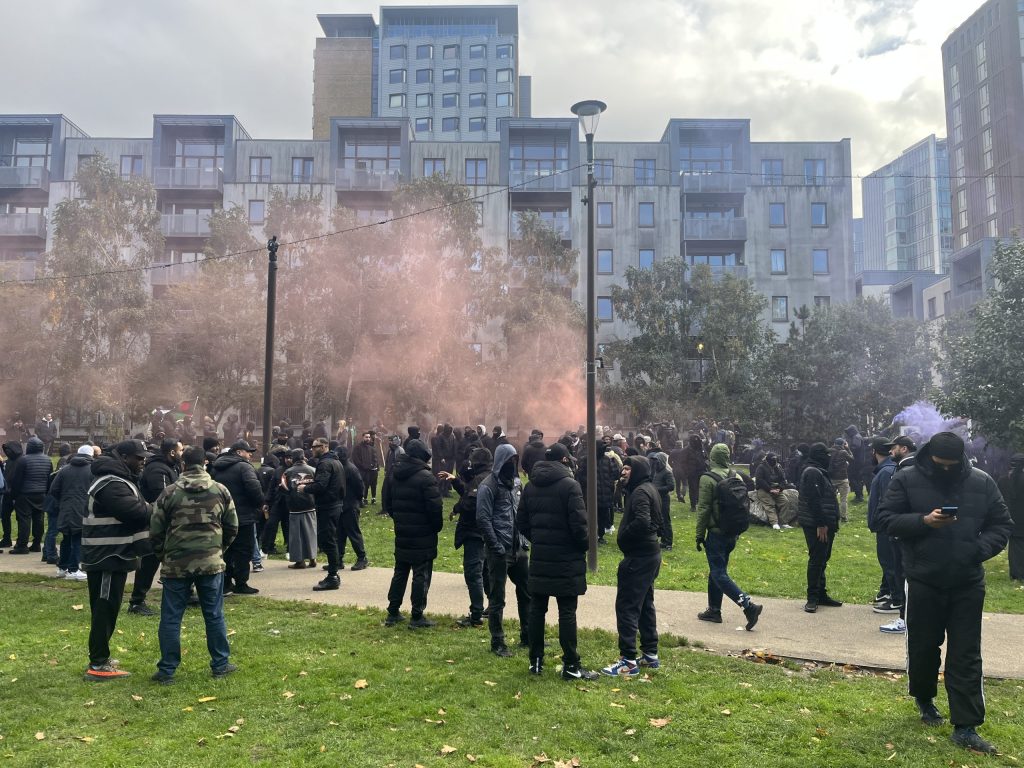
Feature image credit: Salam Jones
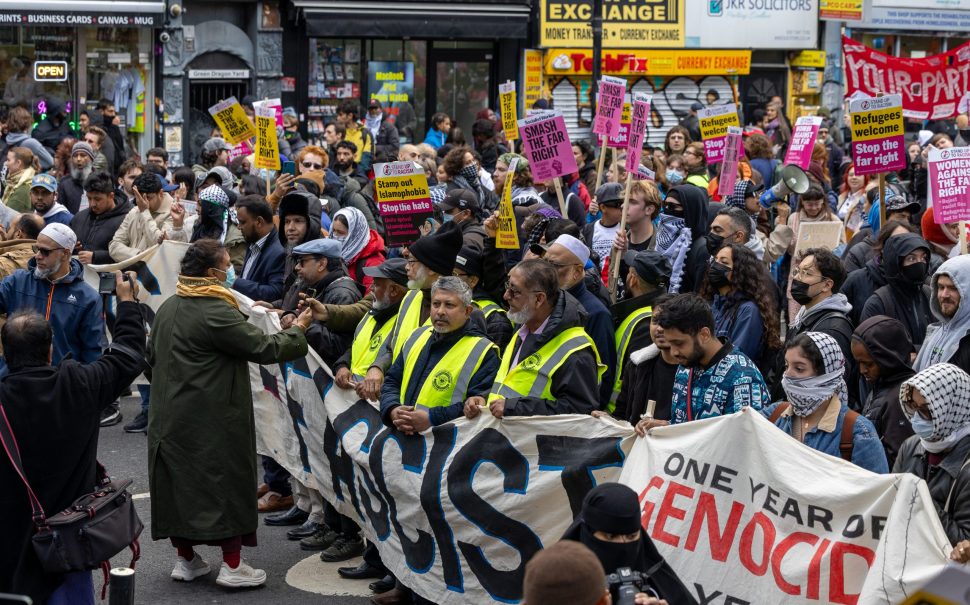
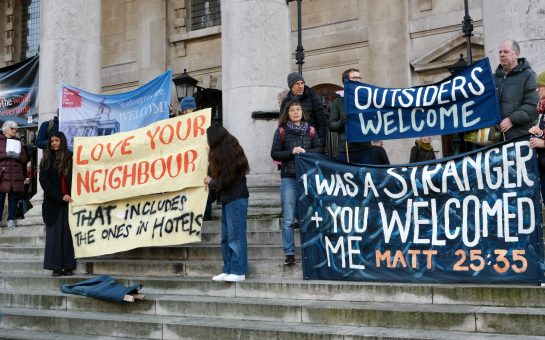
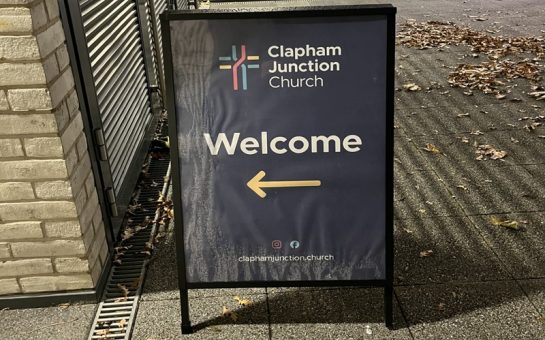
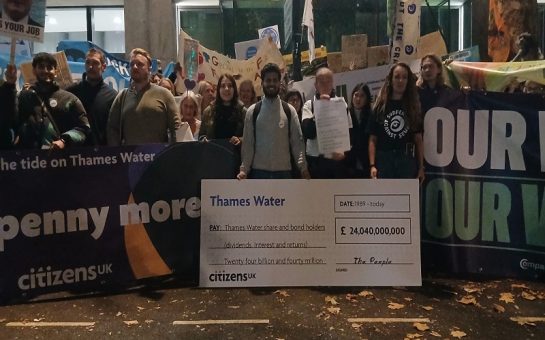
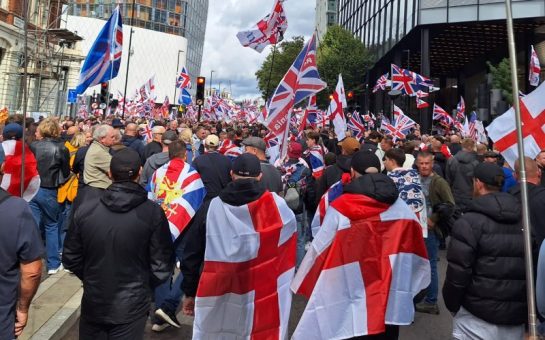
Join the discussion